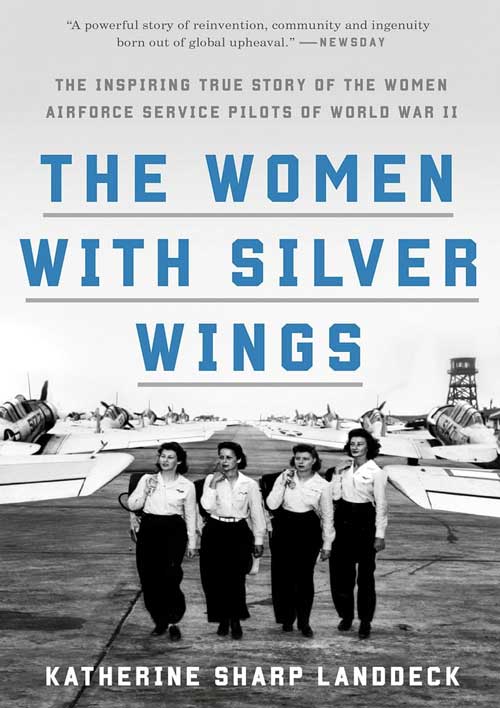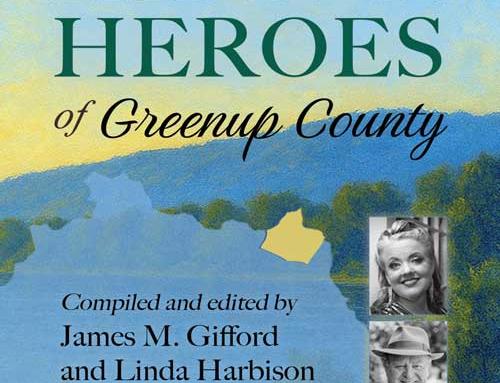When the Japanese attacked Pearl Harbor on December 7, 1941, Cornelia Fort was already in the air. At twenty-two, Fort had escaped Nashville’s debutante scene for a fresh start as a flight instructor in Hawaii. She and her students were in the middle of their lesson when the bombs began to fall, and they barely made it back to ground that morning.
When the U.S. Army Air Forces put out a call for women pilots to aid the war effort, Fort was one of the first to respond. She became one of just over 1,100 women from across the nation to make it through the Army’s rigorous selection process and earn her silver wings.
 The brainchild of trailblazing pilots Nancy Love and Jacqueline Cochran, the Women Airforce Service Pilots (WASP) gave women like Fort a chance to serve their country—and to prove that women aviators were just as skilled as men. While not authorized to serve in combat, the WASP helped train male pilots for service abroad and ferried bombers and pursuits across the country.
The brainchild of trailblazing pilots Nancy Love and Jacqueline Cochran, the Women Airforce Service Pilots (WASP) gave women like Fort a chance to serve their country—and to prove that women aviators were just as skilled as men. While not authorized to serve in combat, the WASP helped train male pilots for service abroad and ferried bombers and pursuits across the country.
Thirty-eight WASP would not survive the war. But even taking into account these tragic losses, Love and Cochran’s social experiment seemed to be a resounding success—until, with the tides of war turning, Congress clipped the women’s wings. The program was disbanded; the women sent home. But the bonds they’d forged never failed.
Over the next few decades they came together to fight for recognition as the military veterans they were—and for their place in history. With meticulous research and breathless pacing, “The Women with Silver Wings” will make you soar with pride at the daring and commitment of America’s first women military pilots.
With the fate of the free world hanging in the balance, women pilots went aloft to serve their nation. They came from all parts of the country and from all walks of life, united by their love of aircraft and their desire to prove that women flyers were as skilled as men.
In every way they succeeded. The WASP withstood danger, cold, heat, military red tape, bureaucratic confusion, scorn, and second-class treatment. They proved their courage, their patriotism, their talent, their ability to master powerful new machines—fighters, bombers, transports—and their staying power. Some gave their lives.
After spending years capturing their vivid stories, Katherine Sharp Landdeck has written a soaring tale in which, at long last, these daring World War II pilots gain the credit they deserve. You will be riveted and inspired by the story of America’s unsung heroines of World War II.
This book is available at the Jesse Stuart Foundation Bookstore at 4440 13th Street in Ashland. For more information, call (606) 326-1667 or email jsf@jsfbooks.com.
We have scheduled the Writer’s Workshop for Friday and Saturday, June 21 & 22, at Greenbo Lake State Resort Park’s Jesse Stuart Lodge. If you would like to attend—or if you want to be placed on a mailing list for more information—please contact me at gifford@jsfbooks.com. Please include your mailing address and telephone number.
By James M. Gifford
JSF CEO & Senior Editor
When the Japanese attacked Pearl Harbor on December 7, 1941, Cornelia Fort was already in the air. At twenty-two, Fort had escaped Nashville’s debutante scene for a fresh start as a flight instructor in Hawaii. She and her students were in the middle of their lesson when the bombs began to fall, and they barely made it back to ground that morning.
When the U.S. Army Air Forces put out a call for women pilots to aid the war effort, Fort was one of the first to respond. She became one of just over 1,100 women from across the nation to make it through the Army’s rigorous selection process and earn her silver wings.

The brainchild of trailblazing pilots Nancy Love and Jacqueline Cochran, the Women Airforce Service Pilots (WASP) gave women like Fort a chance to serve their country—and to prove that women aviators were just as skilled as men. While not authorized to serve in combat, the WASP helped train male pilots for service abroad and ferried bombers and pursuits across the country.
Thirty-eight WASP would not survive the war. But even taking into account these tragic losses, Love and Cochran’s social experiment seemed to be a resounding success—until, with the tides of war turning, Congress clipped the women’s wings. The program was disbanded; the women sent home. But the bonds they’d forged never failed.
Over the next few decades they came together to fight for recognition as the military veterans they were—and for their place in history. With meticulous research and breathless pacing, “The Women with Silver Wings” will make you soar with pride at the daring and commitment of America’s first women military pilots.
With the fate of the free world hanging in the balance, women pilots went aloft to serve their nation. They came from all parts of the country and from all walks of life, united by their love of aircraft and their desire to prove that women flyers were as skilled as men.
In every way they succeeded. The WASP withstood danger, cold, heat, military red tape, bureaucratic confusion, scorn, and second-class treatment. They proved their courage, their patriotism, their talent, their ability to master powerful new machines—fighters, bombers, transports—and their staying power. Some gave their lives.
After spending years capturing their vivid stories, Katherine Sharp Landdeck has written a soaring tale in which, at long last, these daring World War II pilots gain the credit they deserve. You will be riveted and inspired by the story of America’s unsung heroines of World War II.
This book is available at the Jesse Stuart Foundation Bookstore at 4440 13th Street in Ashland. For more information, call (606) 326-1667 or email jsf@jsfbooks.com.
We have scheduled the Writer’s Workshop for Friday and Saturday, June 21 & 22, at Greenbo Lake State Resort Park’s Jesse Stuart Lodge. If you would like to attend—or if you want to be placed on a mailing list for more information—please contact me at gifford@jsfbooks.com. Please include your mailing address and telephone number.
By James M. Gifford
JSF CEO & Senior Editor




